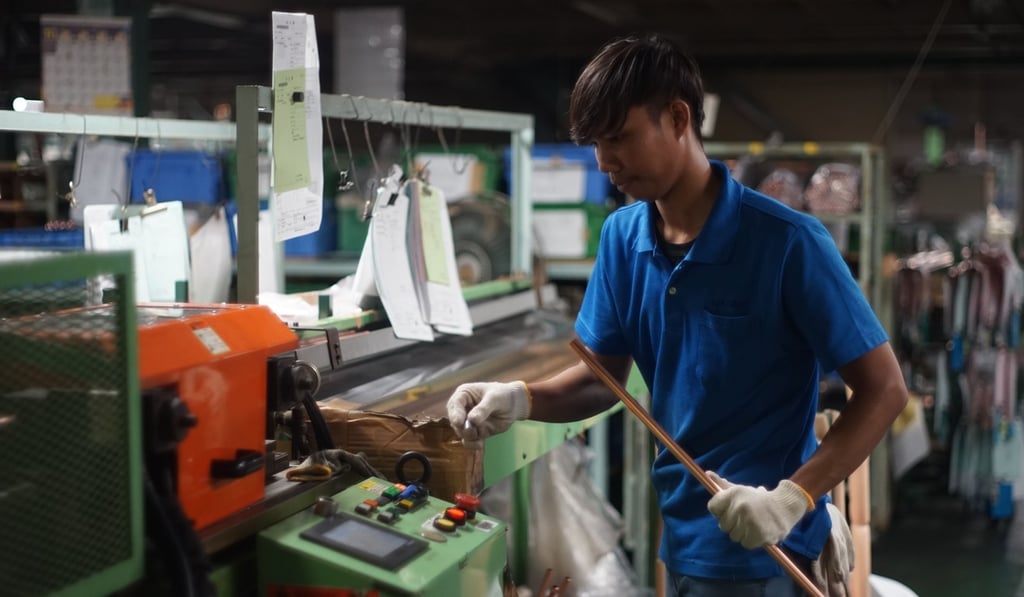Japan eases immigration rules to let in more foreign workers under new visa system
- The new system was launched as hundreds of thousands of foreigners are estimated to take up blue-collar and other types of jobs in the country
- Foreigners with certain Japanese language and job skills can now apply for a resident status called Specified Skilled Worker No. 1, which grants working rights in 14 sectors, such as construction, farming and nursing care

With hundreds of thousands of foreigners estimated to take up blue-collar and other types of jobs, a new immigration agency was established the same day to oversee visa inspections and support the settlement process for such applicants.
Shoko Sasaki, who heads the Immigration Services Agency, said at a press conference that assisting the lives of foreigners is particularly “important” and vowed to operate the system effectively.
Foreign nationals with certain Japanese language and job skills can now apply for a resident status called Specified Skilled Worker No. 1, which grants working rights in 14 sectors, such as construction, farming and nursing care, for up to a total of five years.

Proficient labourers in two sectors – construction and shipbuilding – can further extend their stay by earning the Specified Skilled Worker No. 2 status. It allows holders to bring in family members and has no limit on the number of times they can renew their visa.